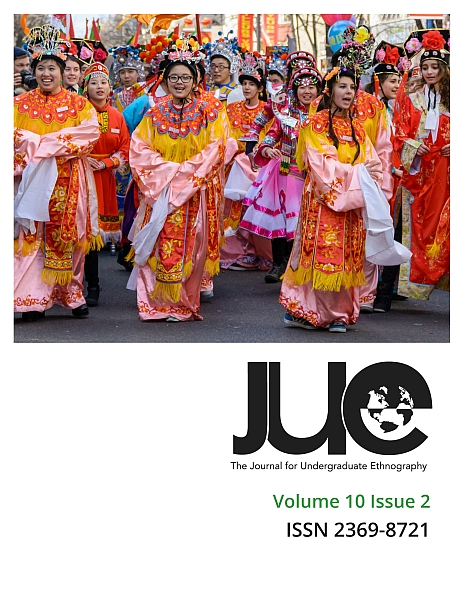Stories of Transnationalism: nÇ kà n wÇ’, wÇ’ kà n nÇ (ä½ çœ‹æˆ‘, æˆ‘çœ‹ä½ )
DOI:
https://doi.org/10.15273/jue.v10i2.10355Palabras clave:
transnationalism, transnational identities, transnational narratives, ethnography, transnational familiesResumen
Transnationalism has been explored in scholarship within the scope of migration and globalisation. Often, related literature and theories conceptualise and deconstruct transnationalism within the framework of methodological nationalism. However, new scholarship suggests that the outdatedness of this framework results in its failure to adapt to, capture, and better understand the complexity and intersectionality of transnationalism in the contemporary context. Drawing on an autoethnographic account of my transnational relationship with my grandmother, this paper delves into the individual everyday perspective of transnationalism and the impacts it has had on facilitating the emergence of transmigrant identities, creating a sense of belonging, and transforming care networks that span the globe. It is a collection of short stories that offers a level of insight, meaning, understanding, being there, and co-presence (Baldassar, Nedelcu, Merla, and Wilding 2016) that exemplifies the contemporary transnational relationship and the ways in which it has been shaped by the digital space, rapid globalisation, and narratives of migration. By researching transnationalism from a qualitative and ethnographic methodology, this paper explores the embeddedness of a “here and there” dynamic (Duong 2015, 233) that has come to reflect a profoundly felt sense of interconnectivity between loved ones. Finally, this study prompts existing researchers and scholarship to critically engage with and adapt their ways of researching transnationalism in the global context.


